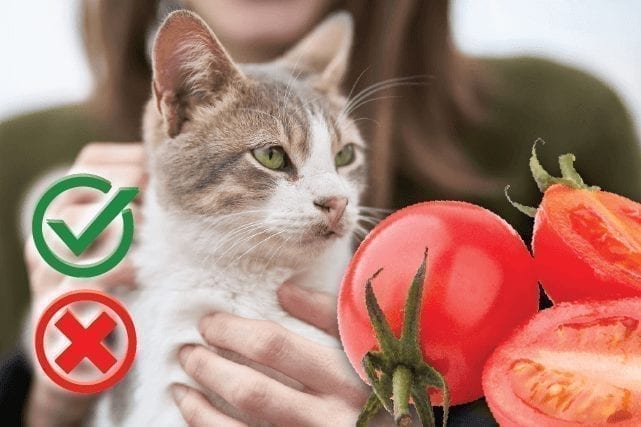No!
Obviously, tomato is a product that is widely consumed on a daily basis. It is even considered the second most consumed food after potatoes. Many believe that it can be an ingredient of choice in the diet of their felines, but beware of mistakes.
The dangers of giving tomatoes to your cat
When a small piece of tomato falls off our plate, it’s common to think that nothing can happen if our cat eats a little. Imagine that the exact opposite is happening. In fact, tomato is a poisonous fruit for your pet. This fruit contains several substances such as tomatine and solatin , these being very dangerous for cats. They can therefore create serious digestive problems for your pet.
How Much Tomato Can You Give Your Cat?
It is now evident that the tomato is a food that is better not to give to your cat. In fact, when the tomatoes are ripe, solatine and tomatine are still present in low amounts in the fruit.
Therefore, if you give your cat a small slice of tomato. It may not affect It. However, in some cases, it can cause stomach upset. On the other hand, if It eats a whole tomato, the risk of getting food poisoning is considerable.
The consequences can therefore prove to be largely disastrous on Its digestive system. It’s even possible that it has a negative impact on Its nervous system or Its kidneys. It’s therefore preferable to completely eliminate the tomato from its diet.
What to give your cat as a replacement?
Just because your cat can’t eat tomatoes doesn’t mean that It’s prohibited from eating other vegetables that will keep It in shape.
However, it’s better to dice the vegetables. It will be able to chew them and increase Its daily ration by 15%. As for the vegetables you can you can opt for:
- pumpkin
- carrots
- sweet potato
- zucchinis
- green beans
- peas
- and cucumber.
However, if your cat is not used to consuming them, you should feed them gradually. It is also possible that a radical change of diet could cause digestive problems in your cat. In addition to this, you should keep in mind that cats have a fairly developed palate. They can therefore be led to dislike certain foods.


